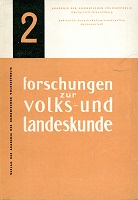
We kindly inform you that, as long as the subject affiliation of our 300.000+ articles is in progress, you might get unsufficient or no results on your third level or second level search. In this case, please broaden your search criteria.

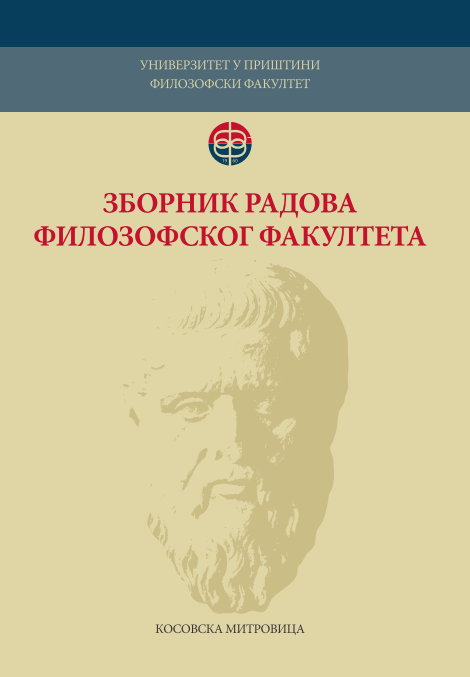
One of the most trustworthy partners of Romania was Yugoslavia. Their common purposes, defensive views, as well as the alliances they were part of, reflect this fact. These states, the forms of which were renewed at the end of The First World War, had always wished for the maintenance of peace and development according to the principles of the Peace Treaties of Paris (1919-1920). The Romanian Yugoslav cooperation in the Little Entente and The Balkan Pact represented the desire of the states in this area to settle down, to stop revisionist states' pretension of reconfiguring the borders. Situated in a restless area, Yugoslavia was compelled to be mindful and on the look out for Fascist Italy's external politics, especially after the occupation of Albania, while Romania found itself a neighbouring country of Nazi Germany after the latter occupied Czechoslovakia. Our endeavour conducts an analysis of the year 1939 through the eyes of diplomats who struggled to stay neutral and maintain their countries' territories unaltered.
More...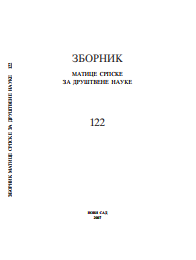
The rule of exhaustion of domestic remedies applies in the process of diplomatic protection. It is justified by the practical and political reasons, in order to avoid big number of claims at the international level. The individual, whose right has been violated, must have the opportunity to seek protection against the violation of international law, or to use the legal remedy, which relates to the questions of international law, but gives substantial compensation for the damage the claimant is complaining of. The rule on exhaustion of local remedies has its origins in the ancient times in the cases of reprisals and it receives its relatively clear limits in the 12th and 13th century, when it is invoked in solving the claims between the merchants and other cities. This practice has been present in the following centuries and with the strengthening of national states, reprisals were regulated by international agreements between states and they were allowed only when the plaintiff did not receive redress, or some unjustified delay in the procedure occurred. The legal doctrine, for example Hugo Grotius and Vattel agreed on this issue and supported the related practice. In the 19th and 20th century practice of the states has been intensified concerning this issue and it presents one of the conditions for the diplomatic protection before international courts and arbitrations. This tendency continues today and the rule on exhaustion of local remedies has its place in the area of protection of aliens and human rights.
More...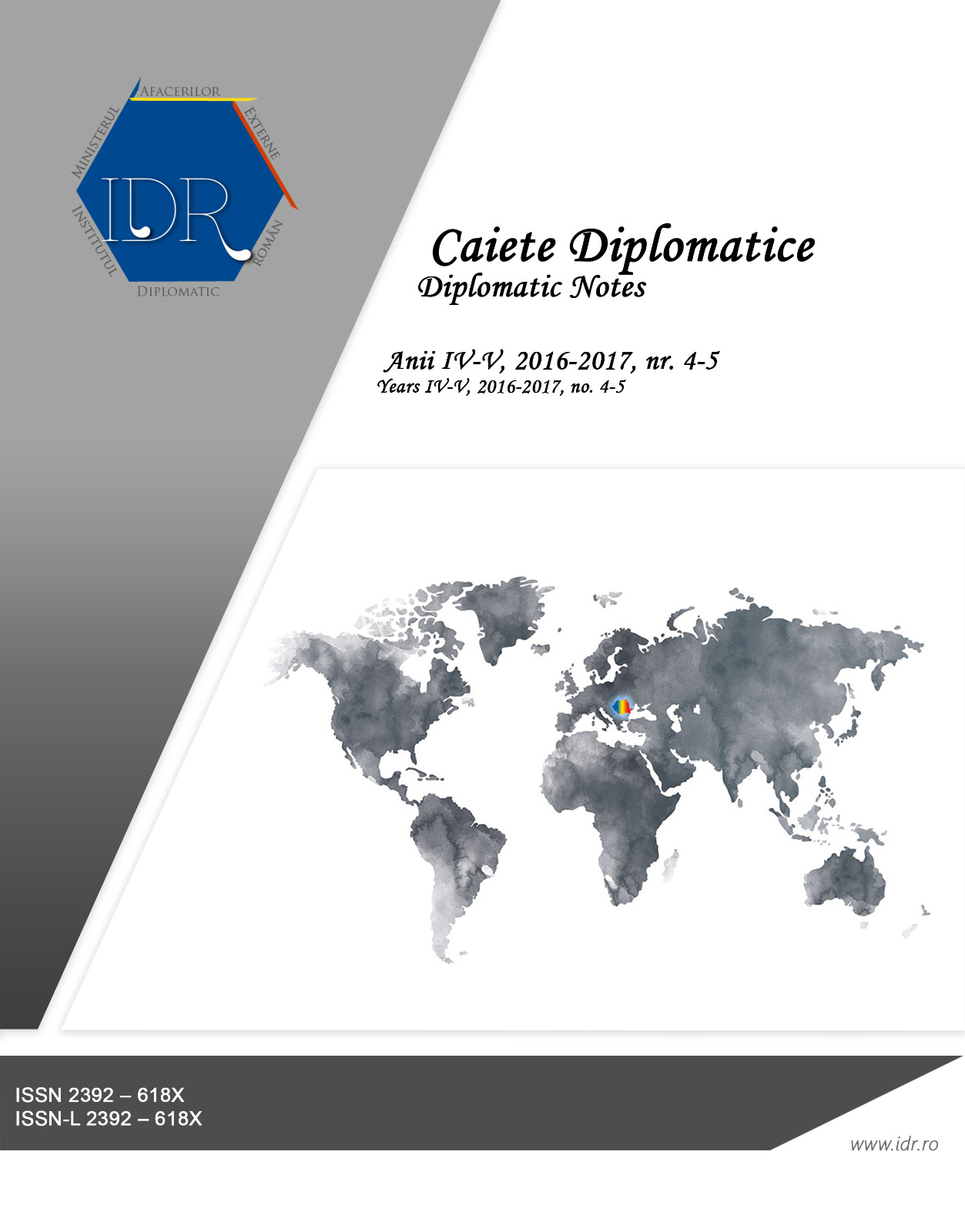
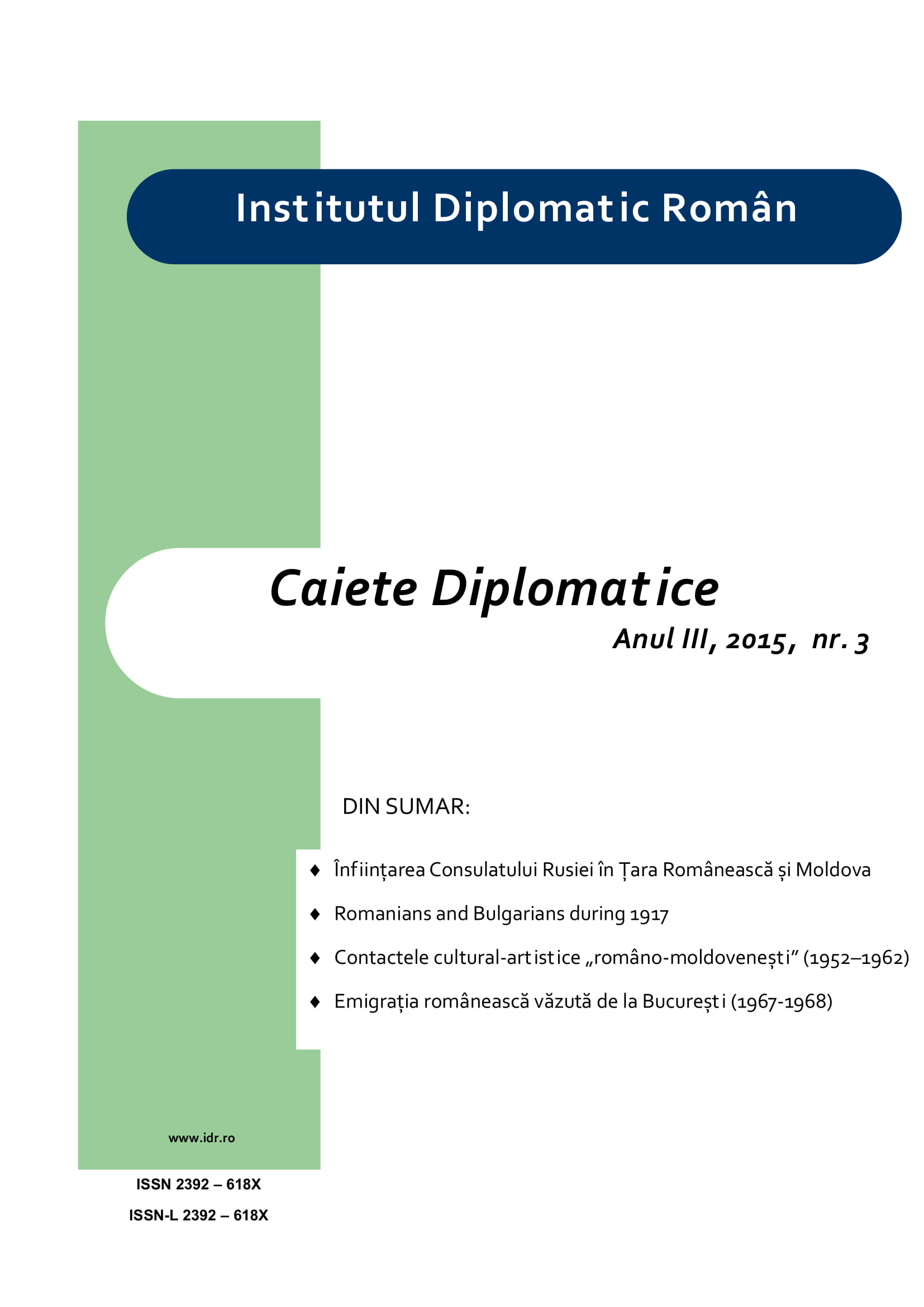
Despite the strict regimen applied to all the documents in the Soviet archives concerning the status of the Romanian treasure sent to Moscow in December 1916, the information that has become well known puts forward less known aspects of the evolution of this issue, which for a century now has been a current one in the Romanian-Russian/Soviet relation. Just as up-to-date are the searches and studies of historical researchers in order to shed light on this topic.
More...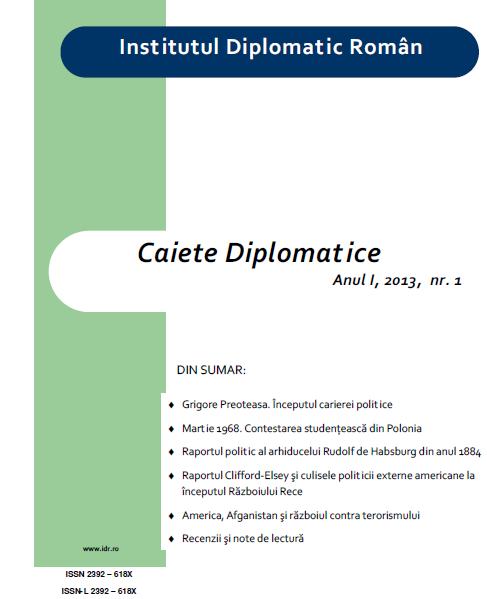
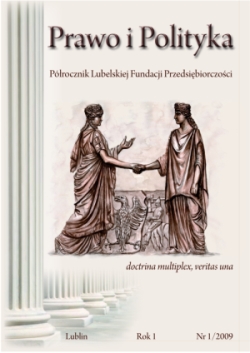
What is the status of Trotsky’s notion of uneven and combined development within theory of international relations, historical sociology and history of international relations? How might it be fruitfully employed in theory and history of international relations? &is article examines the internal relations of „unevenness” and „combination” as presented by Trotsky, Novack and Mandel and reworked by Rosenberg. We focus on the analysis of status of notion of uneven and combined development as a transhistorical general abstraction. &is article accepts Justin Rosenberg’s recently drawn conclusion that uneven and combined development is usefully understood as a transhistoric general abstraction that potentially offers the basis of a transhistoric theory of the „international” and possibility a new interpretation of history of international relations.
More...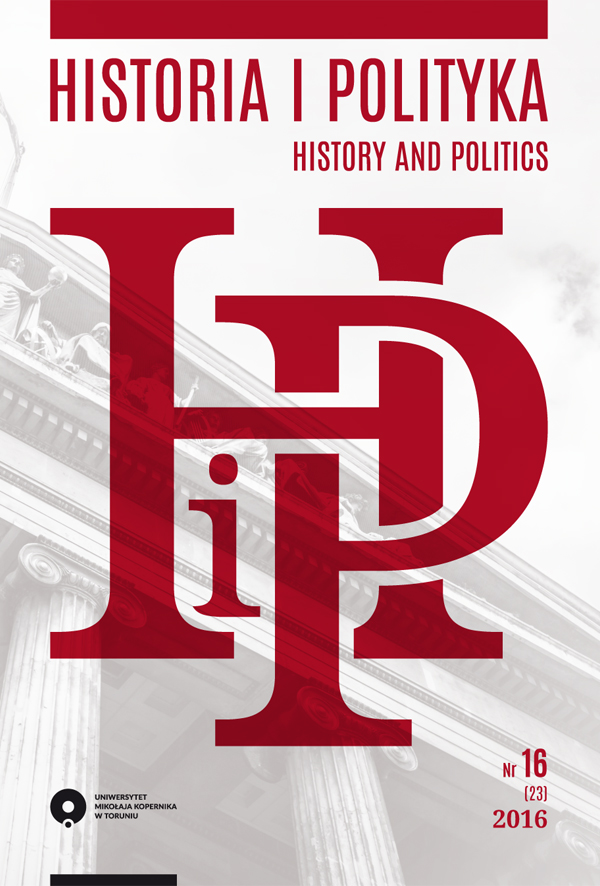
This article’s aims are twofold. Firstly, it endeavours to define the concept of development diplomacy (that is, diplomacy done through development aid) as a part of public diplomacy that realises its aims thanks to soft power resources. Several theoretical sources are recalled and reflected upon in order to come up with a vision of the role of development diplomacy within public diplomacy. Secondly, this article focuses on the role of development diplomacy in the context of the foreign policy aims. Theoretical reflection on this issue is followed by illustrative examples of documents, actions and research, where practical linkages between development aid and foreign policy’ aims where made. It leads to conclusions regarding the practicalities and effectiveness of embracing development aid under the public diplomacy and thus also under foreign policy umbrella.
More...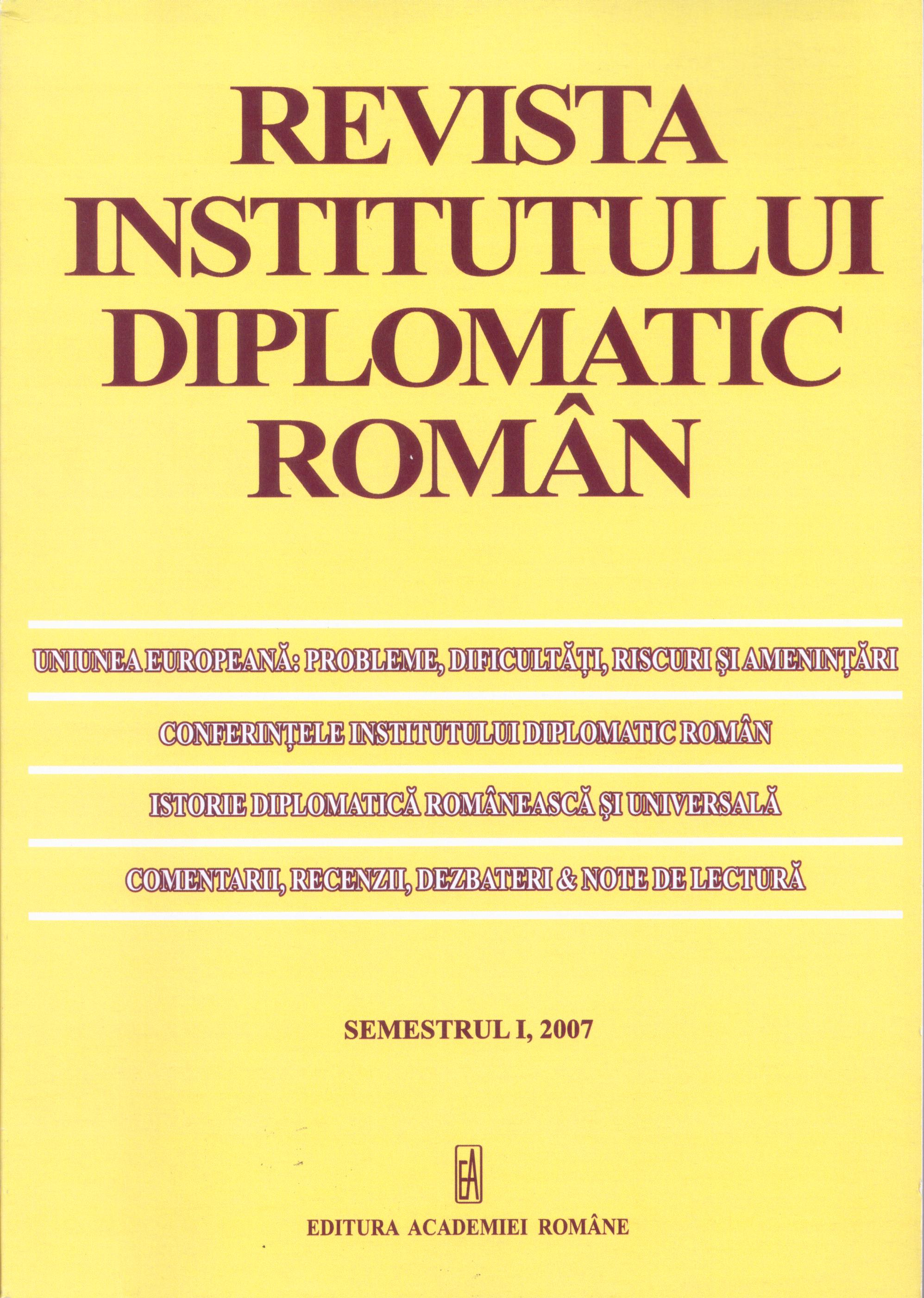
Born in Iaşi, the 16th of November 1818, as the son of Petre Mavrogheni and Ruxandra Sturdza, Petre Mavrogheni was the descendant of an old Greek family (Nicolae Mavrogheni was the reigning prince of Wallachia, between 1786 and 1790) and related to several Romanian dinasties and aristocratic families (Sturdza, Callimachi, Ghica). He grew up in an aristocratic atmosphere, receiving a French education and he studied in Paris. During his uncle Mihai Grigore Sturdza’s and Grigore Alexandru Ghica’s reigns in Moldavia, Petre Mavrogheni occupied different administrative and governmental positions (minister for Public Works in 1852, for Foreign Affairs in 1853 and for Finance in 1854), he worked for the modernization of the roads and wrote, together with M. Kogălniceanu, the decree for the liberation of Gypsy slaves belonging to families or individuals. A supporter of the unification of Moldavia and Wallachia, he was even a candidate for the Throne of the United Principalities, occupied in the end by Alexandru Ioan Cuza. After the dethronement of Cuza, Mavrogheni was one of the closest advisors of the reigning prince and later king Charles I of Hohenzollern-Sigmaringen. He was appointed, in different conservative governments, as minister for Foreign Affairs and for Finance. Between 1871 and 1875, as the minister for Finance, Petre Mavrogheni carried out a series of financial reforms and he succeeded in stabilizing Romanian finances. Having a true vocation for diplomacy, Petre Mavrogheni was sent as Romania’s Minister Plenipotentiary in Rome, Constantinople (where he successfully mediated, thanks to his family connections and personal ability, the conflict between the Ecumenical Patriarchy of Constantinople and the Romanian Orthodox Church and he obtained the official recognition of the autocephalous Romanian Church) and Vienna, where he died, the 20th of April 1887. Petre Mavrogheni was a true aristocrat, descendant of several reigning dinasties, well educated, intelligent and refined, a founder member of the Conservative party, but at the same time a strong supporter of the modernization process, the best Romanian finances expert of the time, the author of essential financial reforms, a defender of peasants’ rights and a high official full of integrity. He was a gentleman and, therefore, a fine diplomat of the 19th century, the perfect time for gentlemen diplomats.
More...

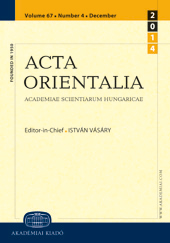
The Ottoman state wanted to regain the territories of Belgrade, Temesvár, the western part of Wallachia and possibly Transylvania, lost as a consequence of the peace-treaty of Passarowitz in 1718. The realisation of this aim seemed feasible when Sultan Mahmud I was at war with the Russian and Habsburg empires in the late 1730s. The Ottomans recognised that they needed the co-operation of Hungarians and a legitimate pretender or at least somebody who could be used in the political game of chess. This role was assigned to József Rákóczi, son of the last prince of Transylvania, Ferenc II Rákóczi, with whom they concluded an agreement on January 20, 1738. Rákóczi made serious efforts to gain the diplomatic support of the European states. His attempt to return to Hungary failed and he died of plague on November 10, 1738.
More...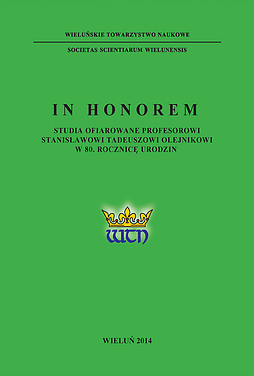
Upadek Rzeczypospolitej Obojga Narodów i utrata bytu państwowego postawiły polską naukę historyczną w sytuacji niezwykle dramatycznej, ale nie było to równoznaczne z jej załamaniem. Przeciwnie, rola historyków w podtrzymaniu świadomości i tożsamości narodowej wzrosła niepomiernie. Kanadyjski historyk Peter Brock (1920–2006) tak pisał o polskich historykach: „Użyli oni wiedzy o przeszłości jako instrument rozumienia teraźniejszości i przyjęli na siebie znaczącą rolę, nie tylko jako kustosze przeszłości, ale też jako interpretatorzy przeszłości i jej znaczenia dla zachowania narodu polskiego”.
More...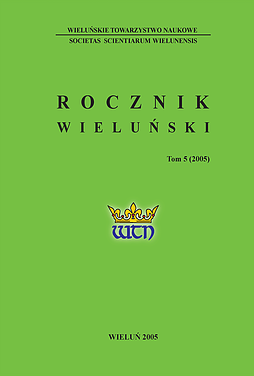
Klęska Niemiec i Austro-Węgier, kończąca I wojnę światową, jak również rewolu¬cja w Rosji przyczyniły się do powrotu na mapę Europy państwa polskiego. Jednak ostateczne nakreślenie granic nowej Rzeczpospolitej nastręczyło nie lada kłopotu, szcze¬gólnie w odniesieniu do granicy zachodniej. Niezgoda wśród głównych mocarstw do¬prowadziła do wybuchu kolejnych trzech powstań ludności polskiej na terenie Śląska. To jednak nie wystarczyło. Decyzj a o przeprowadzeniu na terenach spornych plebi¬scytu spowodowała, że stronie polskiej przypadła w udziale mniej sza ich część, ale za to z większą ilością obiektów przemysłowych. Do ostatecznego zatwierdzenia podzia¬łu Górnego Śląska doszło 20 października 1921 roku, kiedy to Rada Ambasadorów poparła decyzj ę Rady Ligi Narodów dotyczącą tego obszaru. Natomiast 15 czerwca 1922 roku nastąpiła wymiana dokumentów ratyfikacyj nych konwencj i genewskiej, którą miesiąc wcześniej podpisali przedstawiciele dyplomacji polskiej i niemieckiej. Dzień ten przyj muj e się za datę dokonania podziału Górnego Śląska.
More...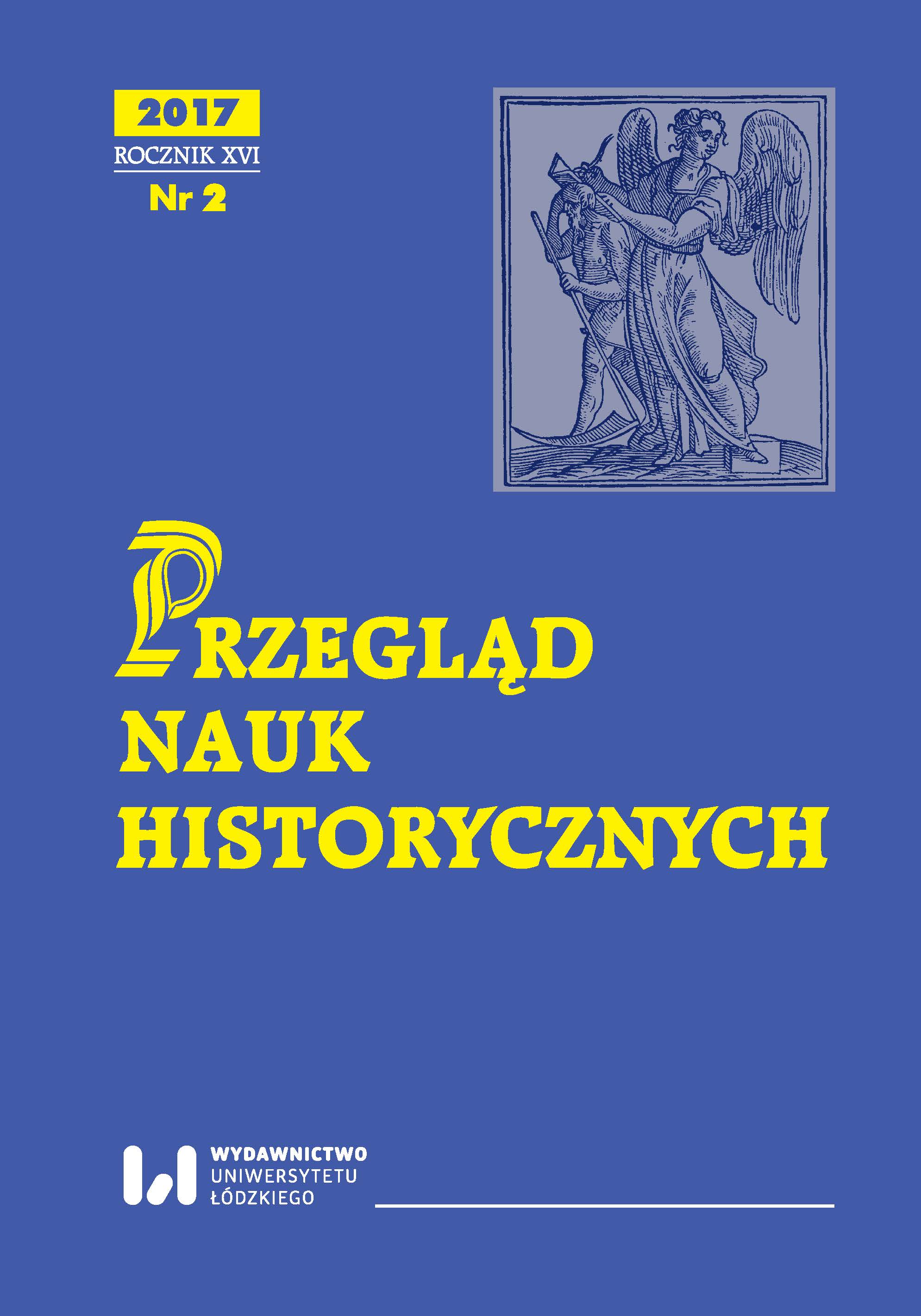
When the Constitution was ratified on May 3, 1791, establishing good relations with Russia was the most important issue for the security of the Commonwealth. As leaders of the Great Diet noticed that prosperous situation in the Polish-Lithuanian state’s international relations was ending, they suggested Stanisław August to turn to Russia. Because of their initiative, the king introduced several members of the St. Petersburg court to the Guardians of the Laws. Yet, it did not reorient Polish foreign policy. Having strengthened his position, Stanisław August was delaying direct talks with the empress. He was convinced, that to avoid Russian intervention in the Commonwealth’s internal affairs, one should not provoke Russians and appease any internal conflicts. That assumption turned to be wrong, though. Contrary to the views of the vast majority of Polish historians, who believed that Russian intervention in Poland was predetermined, the St. Petersburg court was divided, when it came to the policy on the Polish-Lithuanian state. Some advisers of Catherine II believed, that without a final agreement with German courts, one should not start a war with the Commonwealth, because it would be hard, long-lasting and costly. Yet, views of Polish malcontents and empress’s favorite, Platon A. Zubov, were taken into account, and a military operation was launched, without looking at Vienna and Berlin’s position. A passive diplomacy turned out to be a fatal mistake of the Polish king and his advisers. The concept of a limited warfare was equally wrong. The weak resistance of the Polish army strengthened the position of the empress’s favorite. When Stanisław August’s letter to Catherine II arrived at St. Petersburg, already in the course of war, at the Russian court a group of war opponents took a final attempt to stop hostilities, and start negotiations with the Commonwealth’s ruler. However, successes of empress’s troops, that rapidly moved towards Warsaw after the withdrawing Poles, favored supporters of an armed intervention. The king and his advisers ceased to believe in the possibility of victory too soon, and capitulated at the time, when there was still a chance to continue the war, a prolongation of which by several weeks might have prompted the empress to start peace negotiations. It was a great political mistake, which turned out to be the beginning of the end of the First Republic. // Po uchwaleniu Konstytucji 3 maja ułożenie stosunków z Rosją było najważniejszą kwestią z punktu widzenia bezpieczeństwa Rzeczypospolitej. Widząc wygasanie pomyślnej dla państwa polsko-litewskiego koniunktury w stosunkach międzynarodowych, przywódcy Sejmu Wielkiego zasugerowali Stanisławowi Augustowi dokonanie zwrotu ku Rosji. To z ich inicjatywy król wprowadził do Straży Praw kilku stronników dworu petersburskiego. Nie pociągnęło to jednak za sobą reorientacji polskiej polityki zagranicznej. Umocniwszy swoją pozycję, Stanisław August zwlekał z nawiązaniem bezpośrednich rozmów z cesarzową. Był przekonany, że wystarczy nie prowokować Rosjan i łagodzić wszelkie konflikty wewnętrzne, żeby uniknąć rosyjskiej interwencji w wewnętrzne sprawy Rzeczypospolitej. Założenie to okazało się błędne. Wbrew twierdzeniu ogromnej większości historyków polskich, którzy uważali, że rosyjska interwencja w Polsce była z góry przesądzona, na dworze petersburskim do ostatniej chwili trwały spory i dyskusje dotyczące kształtu polityki wobec państwa polsko-litewskiego. Część doradców Katarzyny II była zdania, że bez ostatecznego porozumienia z dworami niemieckimi nie należy zaczynać wojny z Rzecząpospolitą, gdyż będzie ona ciężka, długotrwała i kosztowna. Namowy polskich malkontentów sprawiły jednak, że ostatecznie zwyciężyła, lansowana przez faworyta cesarzowej – Płatona A. Zubowa, koncepcja rozpoczęcia działań zbrojnych bez oglądania się na stanowisko Wiednia i Berlina. Bierność dyplomatyczna okazała się fatalnym błędem polskiego króla i jego doradców. Równie błędna była koncepcja prowadzenia wojny w ograniczonym tylko zakresie. Słaby opór polskich armii umacniał bowiem pozycję faworyta cesarzowej. Już w trakcie działań wojennych, po nadejściu do Petersburga listu Stanisława Augusta do Katarzyny II, grupa przeciwników wojny na dworze rosyjskim podjęła ostatnią próbę przerwania działań zbrojnych i rozpoczęcia rozmów z władcą Rzeczypospolitej. Sukcesy wojsk cesarzowej, które w ślad za wycofującymi się Polakami zmierzały szybko w kierunku Warszawy działały jednak na korzyść zwolenników zbrojnej interwencji. Król i jego doradcy zbyt szybko przestali wierzyć w możliwość odniesienia zwycięstwa i skapitulowali w chwili, kiedy wciąż istniały szanse na kontynuowanie wojny, której przedłużenie o kilka tygodni mogło skłonić cesarzową do wyrażenia zgody na rozpoczęcie negocjacji pokojowych. Był to fatalny błąd polityczny, który okazał się w konsekwencji początkiem końca pierwszej Rzeczypospolitej.
More...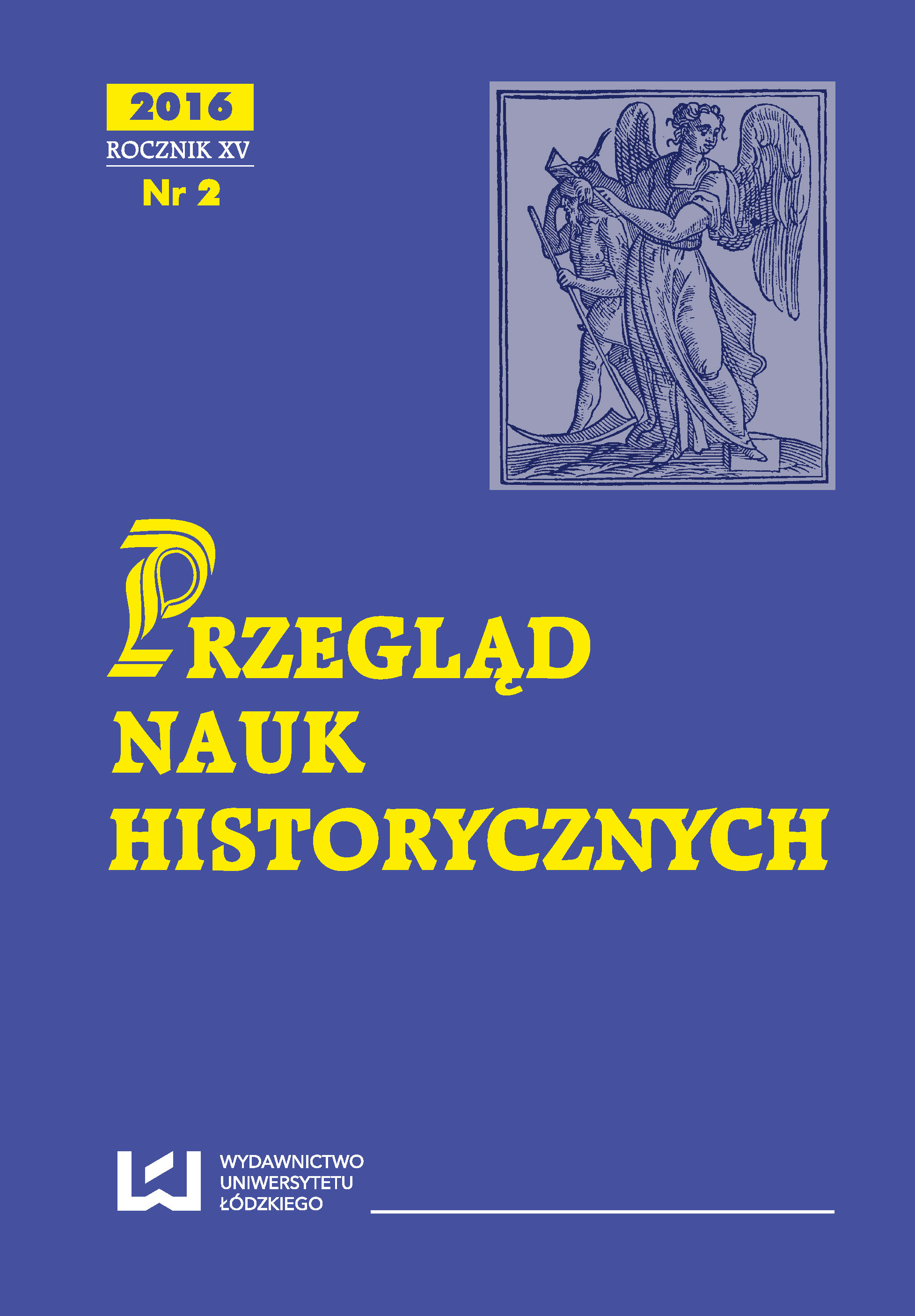
Book-Review: Andrzej M. Brzeziński ̶ Sławomir M. Nowinowski, Polska w dyplomacji czechosłowackiej 1926–1932, Wydawnictwo Uniwersytetu Łódzkiego, Łódź 2013, ss. 370
More...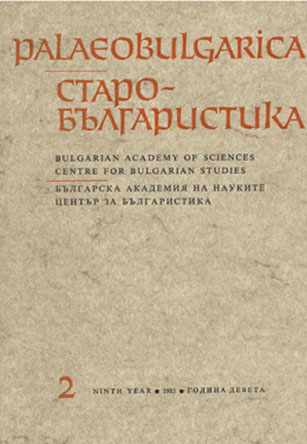
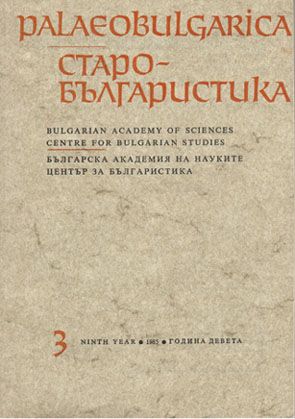
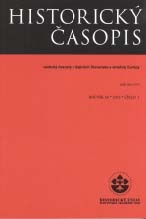
Relations with the King of Bohemia George of Poděbrady were a key factor in the foreign policy of Mathias Corvinus from the beginning of his reign. Initially correct and close relations between Mathias and George later became more changeable as a result of the momentary interests of the monarchs. Their relations gradually became more complicated and cooler, finally leading to open conflict in 1468. The diplomatic ties between the kingdoms of Hungary and Bohemia in the period 1465 – 1469 are the subject of the present study. The territory of the Kingdom of Bohemia at this time was at the intersection of the interests of various European powers. Apart from Mathias Corvinus, the Holy Roman Emperor Frederick III, King Kazimír IV of Poland from the Jagiello dynasty, the Pope and various German dukes from the Wittelsbach and Hohenzollern dynasties were involved in Czech affairs. Apart from describing the relations between the Hungarian and Czech monarchs, the paper aims to put their steps into the context of international affairs in this period.
More...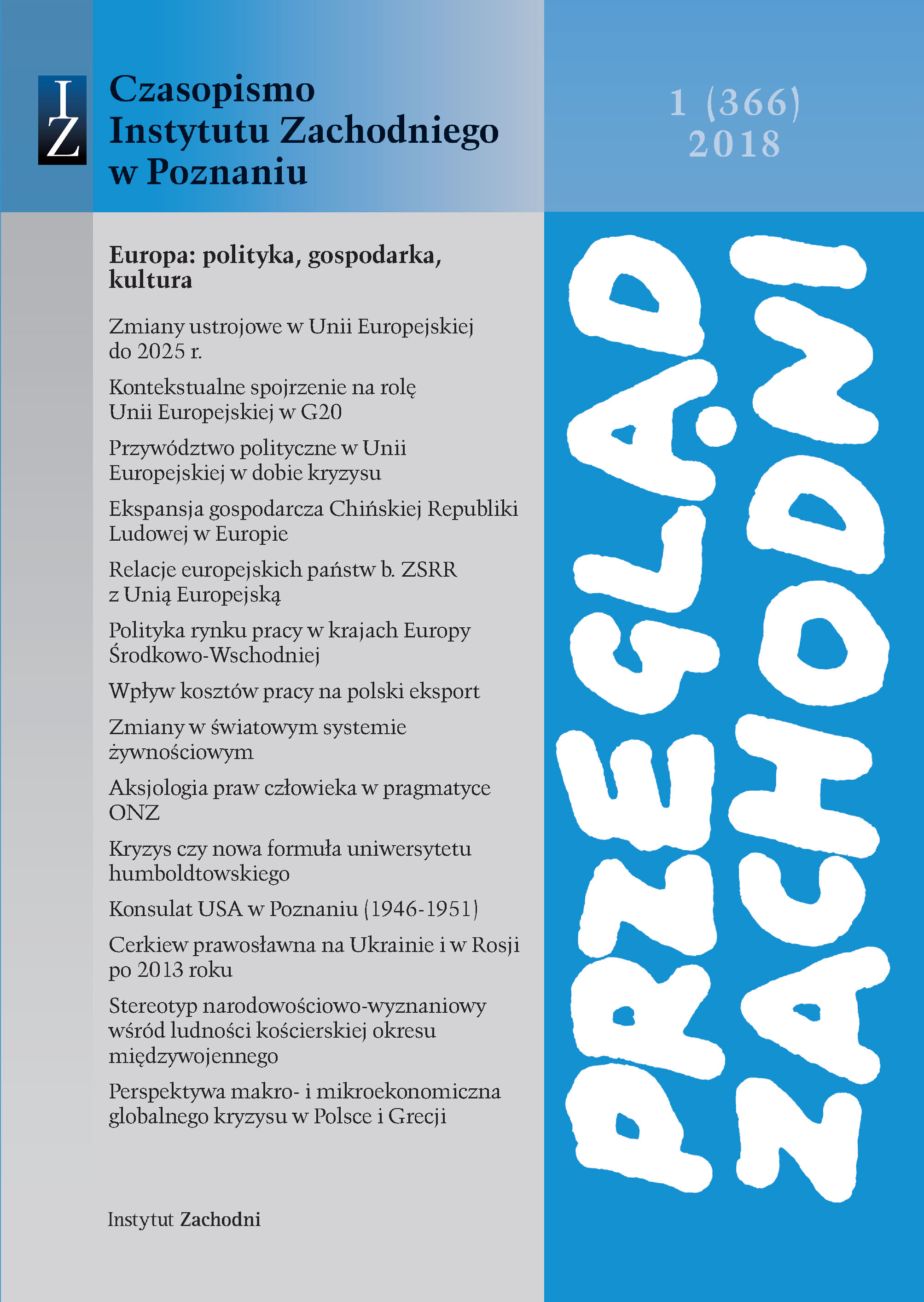
The article provides an account of the activities undertaken by the US Consulate in Poznań duringthe years 1946-1951 against the background of Polish-American relations, whose evolution following the Second World War was affected by changes in the international situation and the growing rivalry between the USSR and the USA. The article attempts to answer two questions: on the organisation and working conditions of the American foreign service in Poland and the aims that the consular post in Poznań intended to achieve. A second area for consideration are the counterintelligence activities of the Polish state security forces directed at American diplomats over the first period of the Consulate’s operation.The analysis includes archival sources outlining the work of the diplomats along with surveillance of the consular officials in Poznań; these sources were subjected to the historical research method and system analysis in order to assess the determinants for the states’ foreign policies. The outcome of the research was the conclusion that the Consulate in Poznań was not a priority institution for US interests and simply carried out routine official activities, promoted the language and culture and fostered social ties. Deteriorating bilateral relations between Poland and the USA, along with an anti-American campaign by the Polish authorities and the actions of the secret police all had an effect on the Consulate’s working conditions including staffing restrictions, difficulties in performing official duties and maintaining socia lrelationships, hence the decision to close the US Consulate in Poznań (on 31 August 1951).
More...